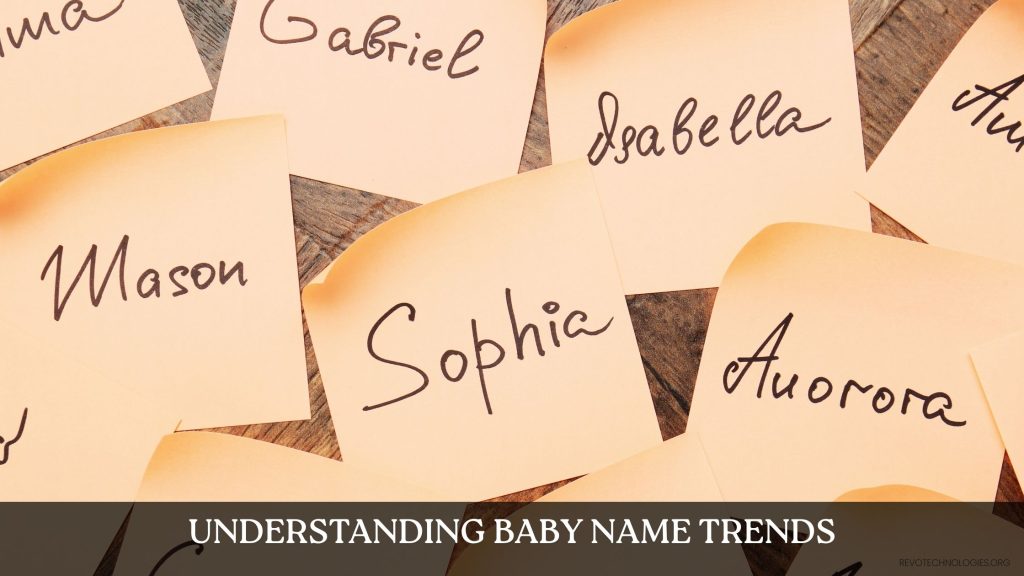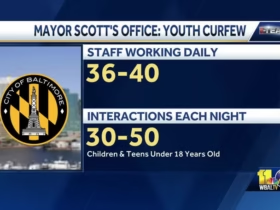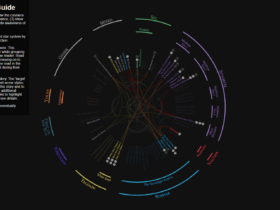Choosing a baby’s name is one of the most important decisions parents make. The name carries cultural, personal, and familial significance. In the United States, there are trends that evolve over time, but certain names remain consistent in their popularity. Whether you’re seeking a classic name or something more unique, understanding naming trends can help you choose the perfect name for your little one.
Noah
Noah is consistently one of the most popular names in the United States. This name, rooted in Hebrew and meaning “rest” or “comfort,” has maintained its popularity for many years. It is often chosen for its simple, timeless nature and its strong biblical connection. Many parents find comfort in selecting a name with such deep roots in history and faith.
The name Noah has surged in popularity in recent decades, consistently appearing at the top of the list of most popular baby names in the U.S. It’s short, easy to pronounce, and works well across different cultures. Its meaning also appeals to many parents who desire a peaceful and strong name for their children.
Naming Trends
Naming trends in the United States are often influenced by various cultural, social, and media-driven factors. For example, the rise of certain celebrities or characters from popular TV shows and movies can quickly make a name trendy. Over the years, we’ve seen names like “Emma,” “Liam,” and “Ava” dominate the charts.
One significant trend is the preference for shorter names, such as Max, Leo, and Mia. These names are not only easier to say and spell but also have a modern feel that parents love. On the other hand, longer, more traditional names like “William” or “Elizabeth” continue to hold their charm for those looking for something more classic.
Parents are also increasingly leaning toward gender-neutral names, such as “Charlie,” “Jordan,” or “Taylor,” which can be used for both boys and girls. This trend reflects a broader shift toward more inclusive and flexible choices for children.
Tips for Choosing the Perfect Name
Selecting the right name for your baby can be overwhelming, but there are several factors to consider that will make your decision easier.

Consider Meaning
The meaning of a name often holds great importance for parents. Some might choose a name because it has a positive meaning, like “Grace” or “Joy.” Others may prefer names that represent strength or resilience, such as “Ethan” or “Gabriel.” It’s important to explore the meaning of a name, as it will be a part of your child’s identity forever.
Cultural Significance
Names carry cultural significance that reflects a family’s heritage and values. For example, some parents may choose to honor their family’s background by selecting a name from their ethnic culture. Names like “Mateo” for Hispanic families or “Liam” for Irish families have become increasingly popular. Understanding the cultural roots of a name can add depth and personal meaning to your choice.
Pronunciation and Spelling
Another important consideration is how easy the name is to pronounce and spell. While unique names may be appealing, they can sometimes lead to frustration for your child as they grow older. Names that are hard to spell or pronounce might cause confusion or embarrassment. It’s essential to strike a balance between uniqueness and simplicity.
Future Considerations
When choosing a name, it’s also important to think about how it will age with your child. What sounds cute for a baby might not always sound as suitable when they’re an adult. Names that are timeless, like “Sophia” or “James,” tend to work well for people of all ages. On the other hand, names that are very trendy today might feel dated in the future.
Additionally, it’s worth considering how the name will be perceived in different contexts, such as in professional environments. A name that sounds sophisticated and professional could be beneficial when your child enters the workforce later in life.
Uniqueness vs. Popularity
One of the most difficult aspects of choosing a baby name is deciding between a unique or popular name. Popular names like “James” or “Olivia” are well-loved for a reason—they are classic and familiar. However, some parents might want something different to stand out from the crowd. In recent years, there has been an increase in parents opting for rare and unique names, aiming to give their children a sense of individuality.
While a unique name may help your child stand out, it’s important to consider how the name might affect their self-esteem. Unusual names may be mispronounced or misspelled, and that can be frustrating. Parents must weigh the benefits of uniqueness with the practical considerations of ease and accessibility.
Understanding Baby Name Trends
Baby name trends are constantly evolving, influenced by many factors, including pop culture, politics, and even social movements. Today, there is a growing trend of choosing names that are inspired by nature, such as “River,” “Sky,” and “Autumn.” These names reflect a desire to connect with the natural world and are gaining popularity for their peaceful and earthy vibes.

Another significant trend is the resurgence of vintage names. Names like “Harper,” “Charlotte,” and “Henry,” which were once considered old-fashioned, are now making a comeback as parents look for names with a sense of nostalgia.
Factors Influencing Name Popularity
There are many factors that influence which names become popular. Celebrities, athletes, and fictional characters can have a huge impact. For example, the name “Arya” became increasingly popular after the success of the TV series Game of Thrones. Similarly, names from royal families, such as “Charlotte” and “George,” also influence naming trends.
In addition, societal movements can shape naming patterns. For instance, as gender equality continues to be an important topic, gender-neutral names are becoming more widely accepted and adopted.
Regional Variations in Name Choices
While there are national trends in baby names, there are also significant regional variations. For example, names like “Luna” and “Liam” are more common on the coasts, while names like “Elijah” and “Emma” are popular in the Midwest. Understanding regional variations can help parents choose names that feel connected to their area or community.
Top 50 Baby Names in the United States
Here are some of the top baby names in the United States:
- Liam
- Noah
- Olivia
- Emma
- Ava
- James
- Sophia
- Jackson
- Amelia
- William …and many more.
These names reflect a blend of classic choices and contemporary trends, offering a variety of options for parents to choose from.
Family and Cultural Significance
Family and cultural ties play a huge role in the selection of baby names. In many cultures, it’s common for children to be named after family members, such as grandparents or great-grandparents. This practice helps preserve family traditions and honors ancestors. Cultural significance can also come into play, with certain names being chosen for their spiritual, historical, or religious meaning.
For example, “Maya” is a popular name in Indian culture, and “Giovanni” is commonly used in Italian families. By choosing a name with family or cultural significance, parents can create a sense of connection to their heritage.
The Bottom Line
Choosing a baby name is a personal decision that can be influenced by many factors. From the meaning of the name to its popularity, cultural significance, and ease of use, there are a variety of things to consider. Whether you choose a classic name like “Noah” or a unique name like “River,” it’s important to choose a name that resonates with you and your family. Above all, remember that your child’s name is a gift that will stay with them for life, so take the time to make a thoughtful choice.














Leave a Reply